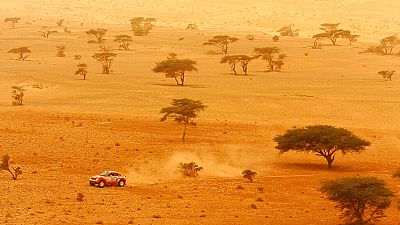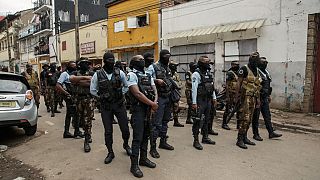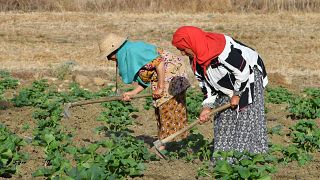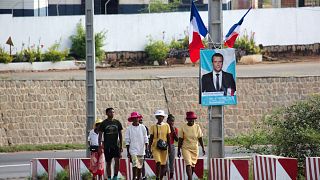Madagascar
The scale of the heatwave that hit Madagascar in October, the worst the island has seen for 40 years, is a consequence of climate change caused by human activity, according to a scientific study published on Thursday.
The phenomenon, which affected the south of the Indian Ocean island, "would have been virtually impossible without climate change caused by human activity", stresses the report by the World Weather Attribution (WWA), a global network of scientists that analyses extreme weather events in real-time.
The study, conducted by 13 experts, concludes that "climate change caused by human activity has raised temperatures" by "1 to 2 degrees", depending on the variables studied (average temperature, coldest days and warmest days).
But "a rise of even half a degree can push thousands of people to their physiological limits" and cause deaths, points out Sanyati Sengupta, technical adviser at the Red Cross Red Crescent Climate Centre.
More than 13,000 people died as a result of extreme weather events in Africa in 2023, more than on any other continent, according to the international disaster database EM-DAT.
Heat peaks are very rarely recorded in Africa, which makes it difficult to accurately study their impact in Madagascar, adds the WWA.
Nearly 91% of Madagascans live below the poverty line, and half of them have no access to drinking water or electricity, making them "very vulnerable to extreme heat", it notes. And many live in makeshift accommodation, making it difficult to implement measures to alleviate them.
While October usually marks the start of the hot and humid season, temperatures here were as high as those usually seen during the December-January peak.
"With heatwaves expected to intensify in Madagascar, it is crucial that both communities and authorities take measures to better withstand them," notes climate researcher Rondrotiana Barimalala.
According to the WWA, the situation calls for urgent investment in early warning and extreme heat forecasting systems.














Go to video
WAFCON 2024/25: Road to the semi-finals begins
Go to video
U.S deportees put in solitary confinement in Eswatini: government spokesperson
Go to video
Togo holds first local elections since controversial power shift
Go to video
"No Substance": Burna Boy apologises for controversial statement about Afrobeats
01:09
Prince Harry visits Angola in repeat of Diana's iconic 1997 trip.
Go to video
Former Nigerian President to be buried today